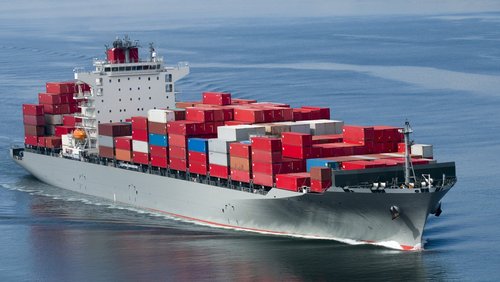The conditions for a national currency to become the world’s reserve currency are, first, a large functioning internal market, second, political power and consistency, third, fiscal responsibility, and fourth, reliable institutions.
It is questionable whether China is really a serious competitor
Artikel in The International Economy Magazine

The conditions for a national currency to become the world’s reserve currency are, first, a large functioning internal market, second, political power and consistency, third, fiscal responsibility, and fourth, reliable institutions.
The experience with the euro—which many observers expected to become the next world monetary system after its introduction in 1999—shows that the road to replacing the dollar is difficult. China does not meet all four conditions, as it has not yet fully developed its domestic market, faces a huge debt burden, and has not gained enough confidence in its institutions. Nevertheless, the current monetary system is being shaped by the increasing trend toward a multipolar world order.
The creation of a leading international monetary system is, after all, a political decision. China has few political allies who would give up their dollar reserves to depend entirely on the yuan. The dollar has been the world’s reserve currency for nearly eighty years since the Bretton Woods conference, when forty-four countries agreed to adopt the dollar as the world’s reserve currency. When U.S. Treasury Secretary John Connally pronounced his famous phrase in 1971, “The dollar is our currency, but it is your problem,” he was pointing out the power of the dollar—and the United States—to function as a trusted institution in a strong economy and a global power. China is not expected to regain similar confidence anytime soon.
It is questionable whether China is really a serious competitor. China’s zero-covid policy has failed dramatically and has shaken the confidence of global investors. The world increasingly doubts the Chinese government’s ability to act in an economically rational manner, and at the same time China lacks reliable institutions to protect property rights. It appears that China’s geopolitical aspirations are dominating economic rationality and causing problems in the private sector, which is facing a huge debt burden because of the geopolitical project.
Furthermore, a dominance of the yuan in international trade would lead to a trade deficit for China with many countries, which might not be in China’s political interest. Moreover, it would require a functioning capital market and regulation, which China still lacks. China is not yet a fully industrialized country—it especially lacks highly specialized and state-of-the-art industrial production and has less innovative power than countries of the West. IMF forecasts predict decreasing growth rates of the Chinese economy to between 3.3 percent and 4 percent in 2025 to 2028. Therefore, it is unlikely that China will overtake the United States as the strongest global economy anytime soon.
Also, the war in Ukraine might affect China’s goal of expanding its currency against the dollar: Russia reduced its dependency on the dollar as foreign currency. These changes in its portfolio might also influence Chinese currency because Russia has invested more in the yuan and less in the dollar for several years by now. Currently, Russia is handling its trade and currency exchange mainly via the yuan. On the one hand, Russia is economically relatively small to really affect the world demand for U.S. currency. On the other hand, due to the increased Russian SPRING 2023 THE INTERNATIONAL ECONOMY 23 usage of Chinese currency, China needs to hold more U.S. dollars in reserve to keep its currency stable against the dollar and if it wants to control further the yuan-dollar exchange rate in offshore banking centers.
In all, China is challenging the United States not only in terms of industrial policy and geopolitics, but also in terms of its currency. Its great influence on the raw materials and resources sector gives China global influence on the currency market. Thus, we will see a more multipolar currency order in the future, with less dominance of the U.S. dollar in international transactions. More trade with China will strengthen the yuan and eventually promote yuan-based payment systems as an alternative to systems such as SWIFT. However, as the United States will remain the world’s leading economic power in the medium term, the U.S. dollar will remain the world’s most-in-demand currency. This becomes even more likely the more the United States uses and strengthens the alliances of the transatlantic West.
It is questionable whether China is really a serious competitor
Artikel in The International Economy Magazine


Handel mit Globalem Süden: Deutschland stagniert, China und Russland expandieren
China dominiert den Handel mit den wichtigsten Ländern des Globalen Südens. Zwischen 2019 und 2023 stieg der Handel Chinas mit dem Globalen Süden stark um 47 Prozent auf über 1,9 Billionen US-Dollar an, sodass die EU und die USA als wichtigste Handelspartner ...
IW
Not so Different?: Dependency of the German and Italian Industry on China Intermediate Inputs
On average the German and Italian industry display a very similar intermediate input dependence on China, whether accounting for domestic inputs or not.
IW